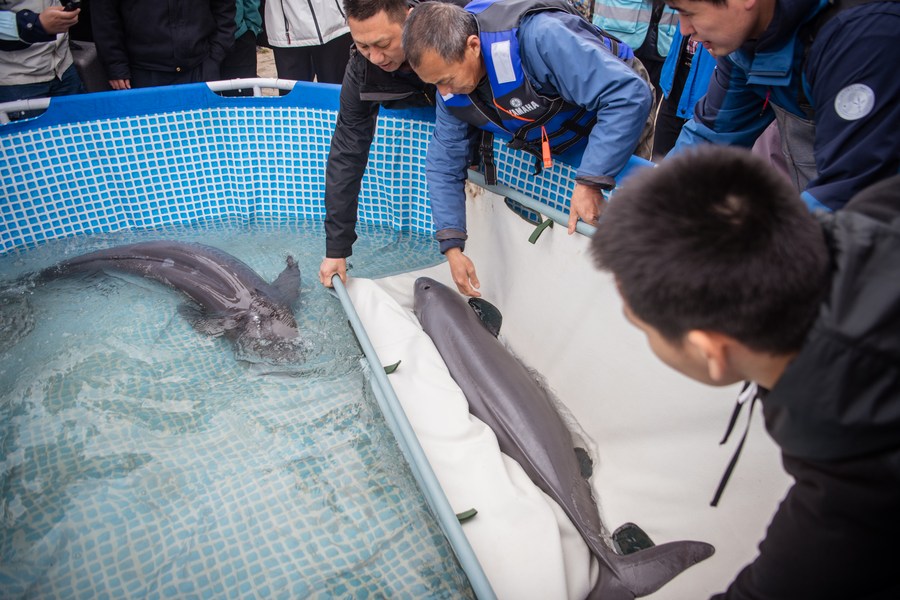
Newsroom
Relocated Finless Porpoises Return Home to Yangtze River

Staff members transport Yangtze finless porpoises to an artificial pool before releasing them to the Yangtze River in central China's Hubei Province, April 25, 2023.(Xinhua/Wu Zhizun)
WUHAN, April 25 (Xinhua) -- China on Tuesday released four Yangtze finless porpoises under ex-situ conservation into the country's longest river Yangtze for the first time, with an aim to boost the population of this critically endangered species.
The newly released finless porpoises were all born in Tian'ezhou National Nature Reserve in central China's Hubei Province. It is one of the earliest ex-situ conservation areas for finless porpoises in the country.
Of the four, two male porpoises aged about 5 years were released into the Xinluo section of the Yangtze River. Researchers had spent two years helping them adapt to the natural water environment of the Yangtze.
The other two porpoises, a 13-year-old male and a 5-year-old female, were released into the Shishou section of the river. They will be first isolated using nets and their ability to catch prey will be monitored before they are guided back to the open-water area.
"This is a milestone in the protection of Yangtze finless porpoises, and indicates significant progress in the ex-situ conservation of the species," said Xia Zhicheng, deputy director of Hubei's forestry bureau.
Researchers will track them for the next three months, and evaluate their adaptability and health status.
The Yangtze finless porpoise, which is under top-level state protection, is an important indicator of the Yangtze River ecology.
China started a porpoise relocation program in the 1990s after concerns were raised that the population of the species had shrunk despite preservation measures.
The sustained improvement of the ecological environment in the Yangtze River basin and the rapid growth of the relocated population of the Yangtze finless porpoise have both provided favorable conditions for the release of porpoises back into the river.
The release of the Yangtze finless porpoises under ex-situ conservation will help to increase the population of the species and improve their genetic diversity, said Hao Yujiang, associate researcher with the Institute of Hydrobiology under the Chinese Academy of Sciences.
Thanks to China's effective measures to conserve finless porpoises, including ex-situ conservation, artificial breeding, and in-situ conservation, the population of the once-endangered mammal is now recovering.
According to the 2022 comprehensive surveys on the species, there were 1,249 finless porpoises in the Yangtze, which marks a significant rebound from 2017 when the figure stood at only 1,012.